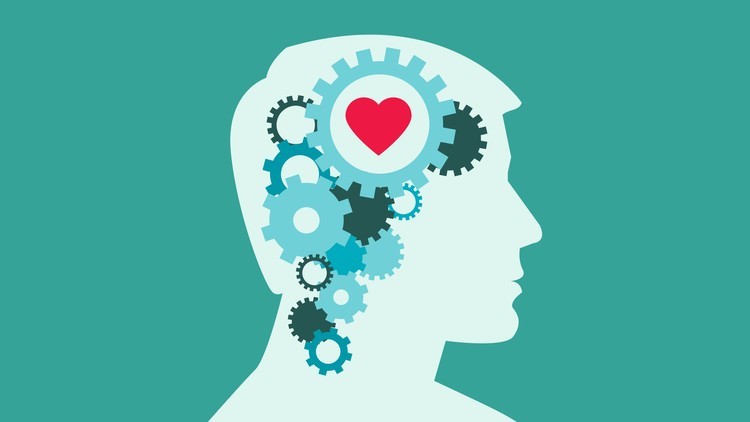|
Trauma can have a debilitating effect on a person's life. The raw emotions, intrusive thoughts, and maladaptive behaviors triggered by past experiences can create a prison of suffering. Fortunately, therapies like Eye Movement Desensitization and Reprocessing (EMDR) offer a powerful tool for breaking free.
Beyond Talk Therapy: A Different Approach Traditional talk therapy often delves into the "why" behind our issues, exploring the roots of our thoughts and behaviors. While valuable, it doesn't always address the raw emotional charge associated with trauma. EMDR takes a different path. We don't just talk about the event; we reprocess it, aiming to shift how the brain stores the memory. The Power of Bilateral Stimulation: The "eye movement" in EMDR isn't just a catchy name. It refers to various forms of bilateral stimulation, like side-to-side eye movements, hand taps, or auditory tones. While the exact mechanism remains under investigation, research suggests this stimulation activates the brain's natural processing and healing mechanisms. Unlocking the Vault: The first step is to create “grounding,” a safe space to explore the traumatic feelings. During EMDR sessions, you'll safely explore specific aspects of the traumatic memory, focusing on the most disturbing images, thoughts, and emotions. As you do, I'll guide you through the bilateral stimulation, creating a safe space for your brain to begin revisiting and reprocessing the experience. It's Not About Erasing Memories: It's important to clarify that EMDR doesn't erase memories. The events themselves remain, but their emotional sting is lessened. Imagine the memory like a locked file cabinet. EMDR helps reorganize that file, making it easier to access without being overwhelmed by the associated negativity. Transforming the Negative Narrative: As you reprocess the trauma, you'll also have the opportunity to develop a more empowering narrative about the experience. This could involve identifying positive self-beliefs, like "I am strong" or "I survived," that counter the negative self-talk often linked to trauma. Beyond Trauma: A Wider Scope: While EMDR was initially developed for trauma, its applications have expanded. It can be effective for phobias, anxiety, depression, and even grief. The core principle remains the same: addressing the underlying emotional charge associated with distressing experiences. Is EMDR for Everyone? Like any therapy, EMDR isn't a one-size-fits-all solution. It requires commitment and active participation. However, for many individuals struggling with the aftereffects of trauma, it can offer a beacon of hope and a path towards healing. If you're interested in exploring EMDR, speaking with a qualified therapist is the first step. Remember, you are not alone in your journey towards healing. Take The Next Step Take the next step in your recovery journey. Contact Scott Olds at (303) 817-8369 or email at [email protected] for a free phone or video evaluation. As a psychotherapist, I've witnessed countless individuals battling the tempestuous waves of grief. While mourning is a natural process, sometimes the loss of a loved one can be intertwined with trauma, creating a double dose of heartache. This "traumatic grief" can leave you adrift in a sea of overwhelming emotions, clinging to distorted memories and struggling to find your way back to the shore of acceptance.
This is where Eye Movement Desensitization and Reprocessing (EMDR) takes center stage. Often hailed as a revolutionary tool for trauma treatment, EMDR can be a beacon of hope for those grappling with traumatic grief. Its unique approach bypasses the analytical, ruminative tendencies of talk therapy and instead taps into the brain's inherent capacity for healing. Imagine yourself trapped in a labyrinth of painful memories, each corner echoing with the anguish of loss. EMDR becomes the Ariadne's thread, guiding you through this maze. Here's how it works:
A Tailored Approach: The beauty of EMDR lies in its flexibility. It can be seamlessly integrated into various therapeutic approaches, making it suitable for a wide range of individuals and grief experiences. Whether you've lost a loved one to sudden death, a prolonged illness, or even natural disaster, EMDR can offer a path to healing. A Beacon of Hope: While grief is a universal human experience, traumatic grief can feel like a solitary burden. EMDR empowers you to break free from its isolating grip. It offers a roadmap out of the labyrinth of pain, leading you towards a future where the memory of your loved one holds not just sorrow, but also love, gratitude, and perhaps even a renewed sense of meaning. As a psychotherapist, I've seen firsthand the transformative power of EMDR in helping individuals navigate the turbulent waters of traumatic grief. If you're struggling with a loss that feels insurmountable, remember, there is hope. EMDR can be the lighthouse guiding you back to calmer waters, allowing you to embrace life with an open heart and find peace amidst the storm. For a free phone or video call evaluation, contact Scott at (303) 817-8369 or email at [email protected]. Trauma is a deeply distressing or disturbing experience that can have a lasting impact on a person's life. It can affect a person's physical and mental health, their relationships, and their ability to cope with stress.
One of the ways that trauma can impact a person is by affecting their emotional intelligence. Emotional intelligence is the ability to understand and manage one's own emotions, as well as the emotions of others. When a person experiences trauma, they may develop unhealthy coping mechanisms that can damage their emotional intelligence. For example, a person who has experienced abuse may learn to suppress their emotions in order to cope with the pain. This can lead to difficulty identifying and expressing emotions, which can make it difficult to build healthy relationships and manage stress. Another way that trauma can impact emotional intelligence is by creating learned patterns of behavior. These patterns are often developed in childhood as a way to cope with the trauma. For example, a child who is neglected may learn to become self-reliant and independent. This pattern of behavior can be helpful in some situations, but it can also make it difficult to form close relationships as an adult. A psychotherapist can help a person who has experienced trauma to improve their emotional intelligence and break free from learned patterns of behavior. This can be done through a variety of techniques, such as:
By working with a psychotherapist, a person who has experienced trauma can learn to heal and rebuild their emotional intelligence. This can lead to a better understanding of themselves and their emotions, as well as the ability to build healthy and fulfilling relationships. In addition to the techniques mentioned above, a psychotherapist may also use other approaches, such as:
The best approach for a particular individual will depend on the nature of their trauma and their individual needs. A psychotherapist can help to assess the best approach and provide the support and guidance that the person needs to heal. If you or someone you know has experienced trauma, it is important to seek professional help. A psychotherapist can help you to understand and heal from the trauma, and to improve your emotional intelligence and break free from learned patterns of behavior. For help overcoming trauma, contact Scott Olds at (303) 817-8369 or email at [email protected] for a free phone or video evaluation. |
AuthorScott F. Olds, Psychotherapist Categories
All
Archives
February 2024
Call Scott at
|
Package Discount: Get a 4-session package for 10% off! Call for details.
I offer sessions in the office, in an open space (weather permitting), by phone, and by video sessions for your safety and convenience. Take a deep breath and give me a call at (303) 817-8369 or email me at [email protected].
Confidential: I am HIPAA compliant, so your privacy is protected.
Crisis Information: If you are in crisis, call Colorado Crisis and Support at 844-493-8255 or the national Suicide and Crisis Lifeline at 988 for 24/7 for help in an emergency. These lifelines provide free and confidential support for people in distress, prevention, and crisis resources for you or your loved ones.
(303) 817-8369
[email protected]
10960 W. 65th Way
Arvada, Colorado 80004
My office is in Arvada, Colorado.
Privacy Policy







